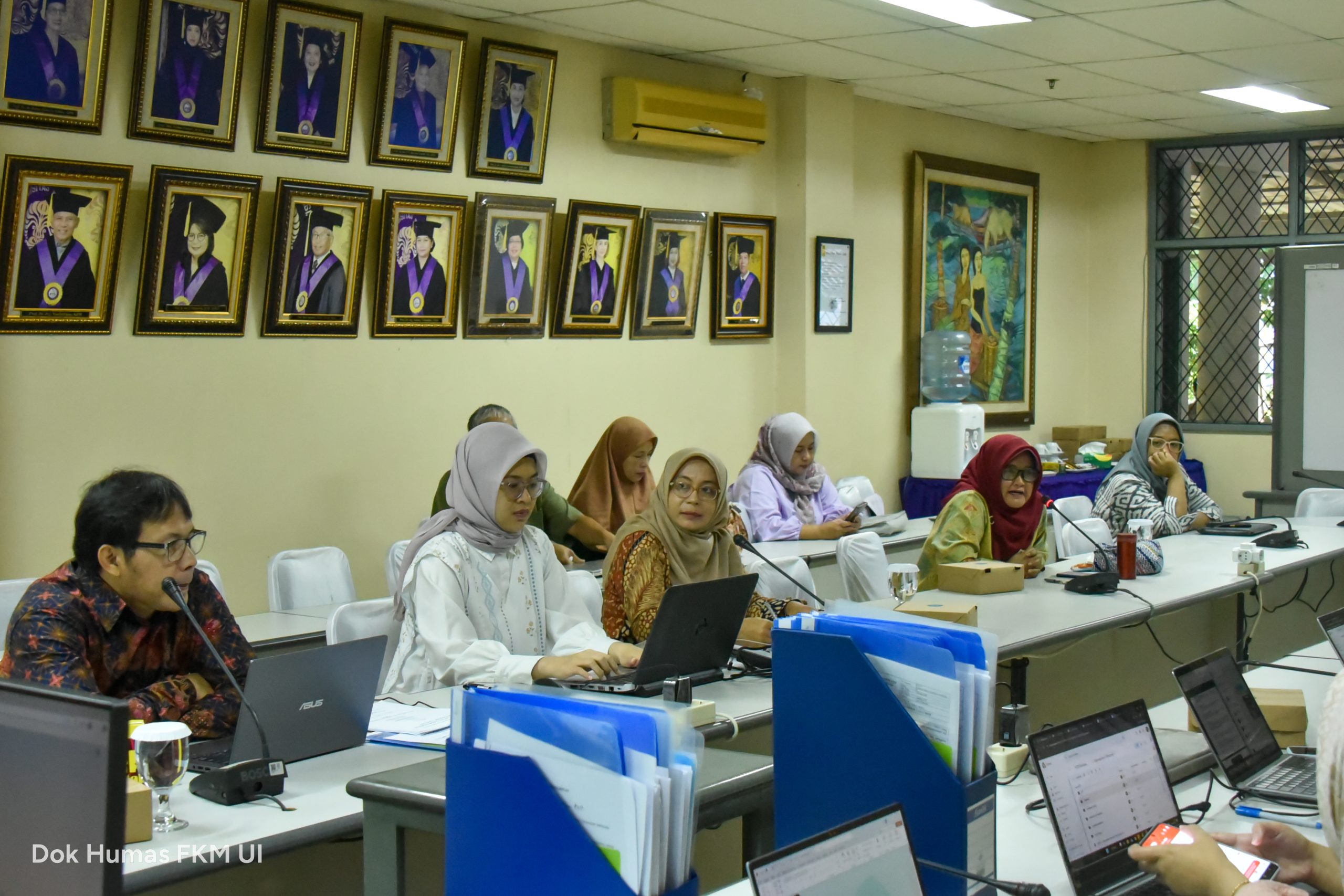Depok, August 26, 2025 – The Public Health Innovation and Research Laboratory (PHIR-Lab UI) of the Faculty of Public Health (FPH) Universitas Indonesia (UI) received an internal audit visit from the Academic Quality Assurance Board (BPMA). This internal audit serves as an initial step in preparing for the external audit by the National Accreditation Committee (KAN), scheduled for 2026.
The audit was conducted by the BPMA UI auditor team led by Asep Saefumillah, S.Si., M.Si., Ph.D., with members Dian Wulandari, S.K.M., M.M., and Nyiayu Halimatusa’diyah, S.Si. The process included document review, interviews with laboratory managers and stakeholders, as well as discussions on achievements, challenges, and future development strategies.
In his remarks, the lead auditor explained that the purpose of the internal audit was to ensure the implementation of laboratory quality management based on ISO 17025:2017, evaluate the effectiveness of the system in guaranteeing the quality of testing or calibration results, identify nonconformities, and most importantly, serve as an internal evaluation tool to measure PHIR-Lab UI’s readiness for the upcoming external audit by KAN.
Lead Auditor Asep Saefumillah, S.Si., M.Si., Ph.D., also praised PHIR-Lab’s commitment to maintaining quality laboratory services. “We see a strong commitment from the PHIR-Lab team in managing impactful research activities for society. This internal audit will strengthen PHIR-Lab in facing the external audit by the National Accreditation Committee (KAN),” he stated.
Meanwhile, the Head of PHIR-Lab, represented by Prof. Ririn Arminsih Wulandari, emphasized that this audit is a valuable opportunity to evaluate and identify areas for improvement. “The feedback from BPMA UI will be highly important for us to continuously improve governance, ensure the sustainability of testing services for the community, and strengthen our contribution to public health research,” said Prof. Ririn.
In her address, Dr. Asih Setiarini, Vice Dean for Education, Research, and Student Affairs of FPH UI, highlighted that the audit is not only an assessment but also a learning opportunity to enhance the internal quality assurance system.
“We invite the auditors to conduct a comprehensive review, as their evaluation provides a valuable means of improvement. Just as study programs undergo accreditation, we also aim for our laboratories to achieve both national and international accreditation in the future,” affirmed Dr. Asih Setiarini.
Based on the audit results, FPH UI is committed to taking follow-up corrective actions so that PHIR-Lab can be further optimized as an integrated laboratory supporting not only student activities but also providing public testing services and serving as a center for public health research.
Currently led by Prof. Doni Hikmat Ramdhan, PHIR-Lab UI is an integration of the Nutrition Laboratory, Environmental Health Laboratory (KL), and Occupational Health and Safety Laboratory (OHS) that previously operated under the respective departments of FPH UI. Initially, these three laboratories were established as facilities to support educational activities at FPH UI. In 2024, based on the Decree of the Dean of the Faculty of Public Health Universitas Indonesia Number 64/AK/F10.D/UI/2024, they were merged into a single integrated laboratory to support student education, provide public testing services, and serve as a hub for public health research.
For reference, testing services offered at PHIR-Lab FPH UI include Proximate Analysis; Food Microbiology Testing; Wastewater Microbiology Testing; Air Microbiology Testing; Food Additives Testing; Water and Wastewater Chemical Testing; Ambient Air Testing; Occupational Environment Testing (Industrial Hygiene); and Conventional Testing. (sf)

